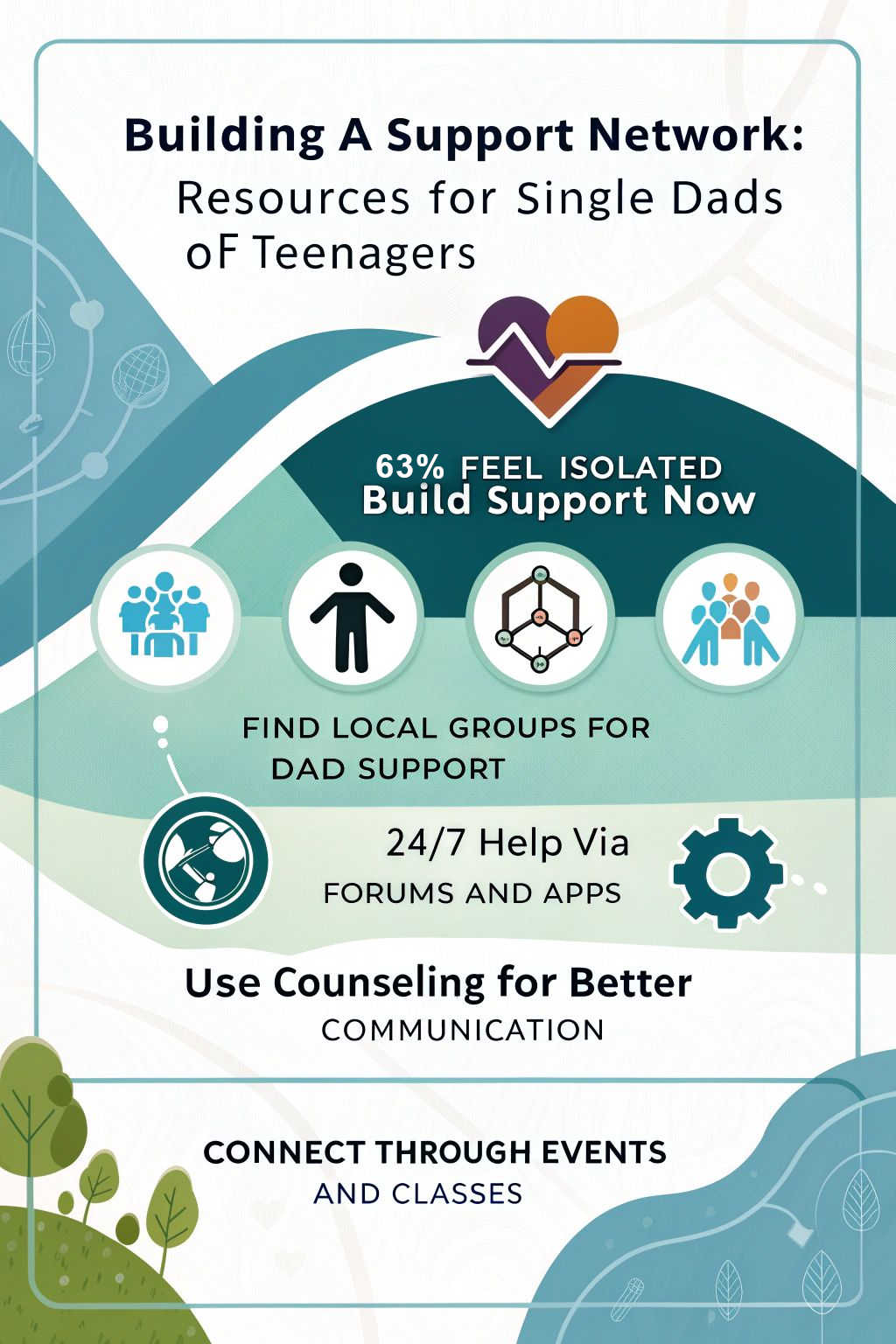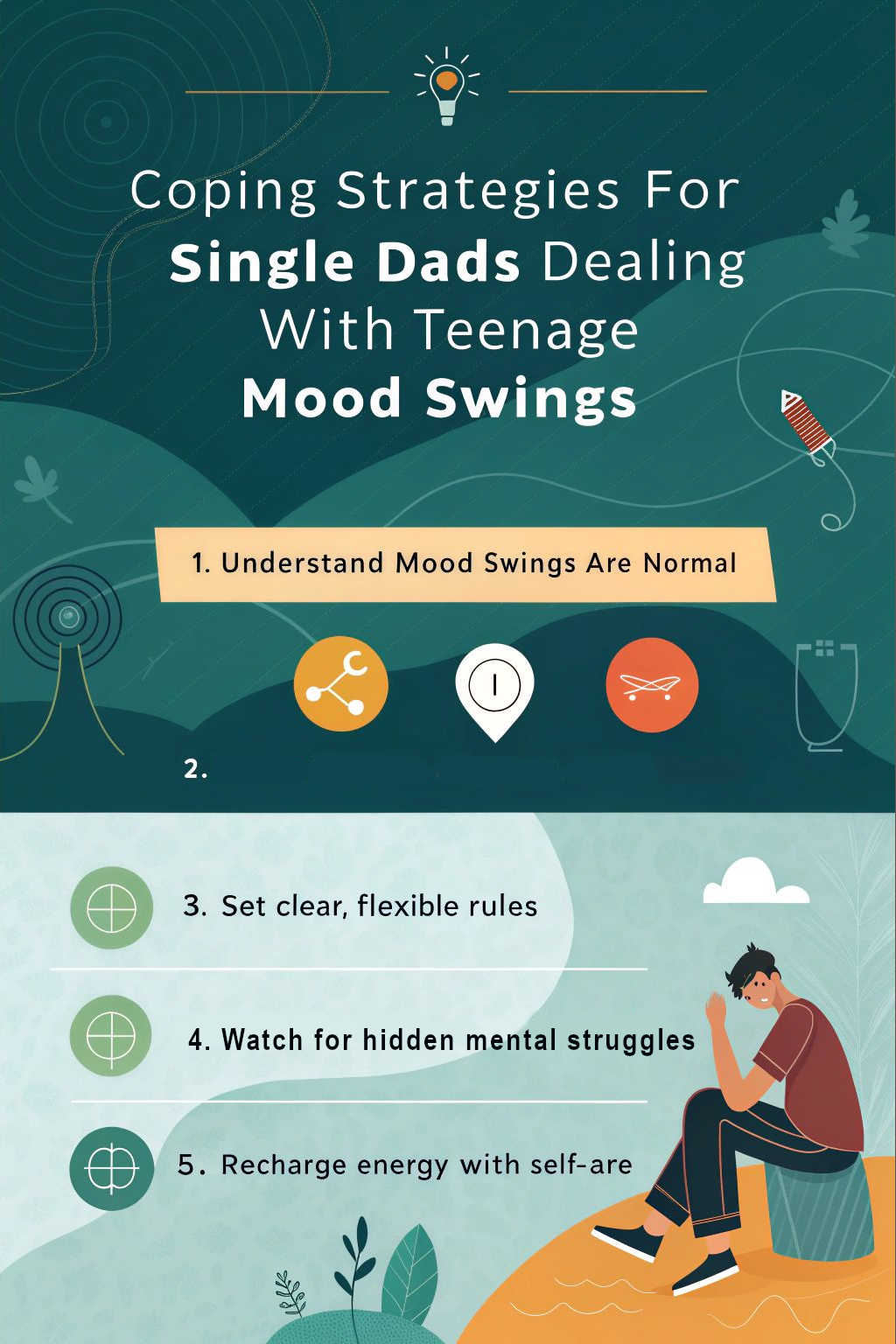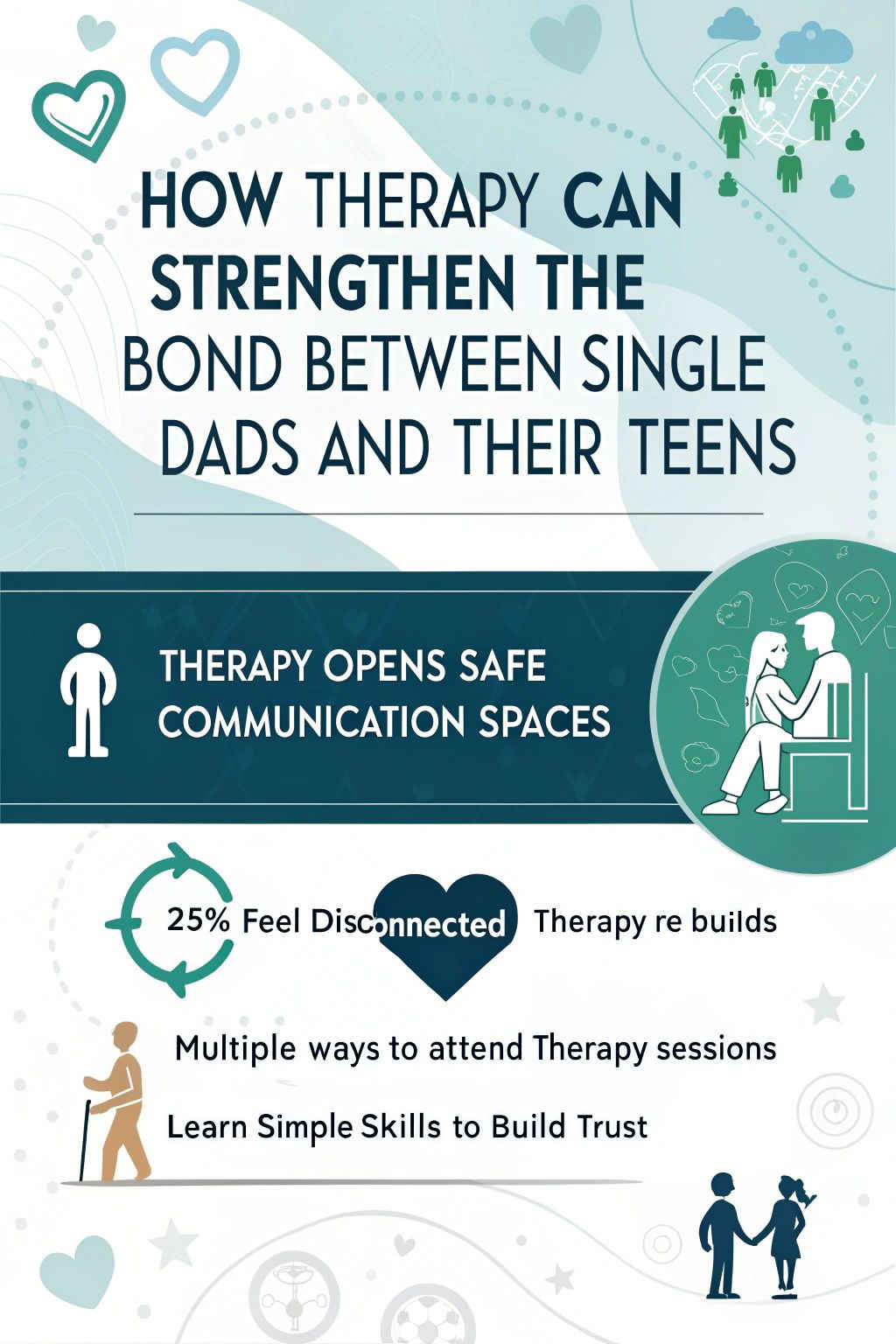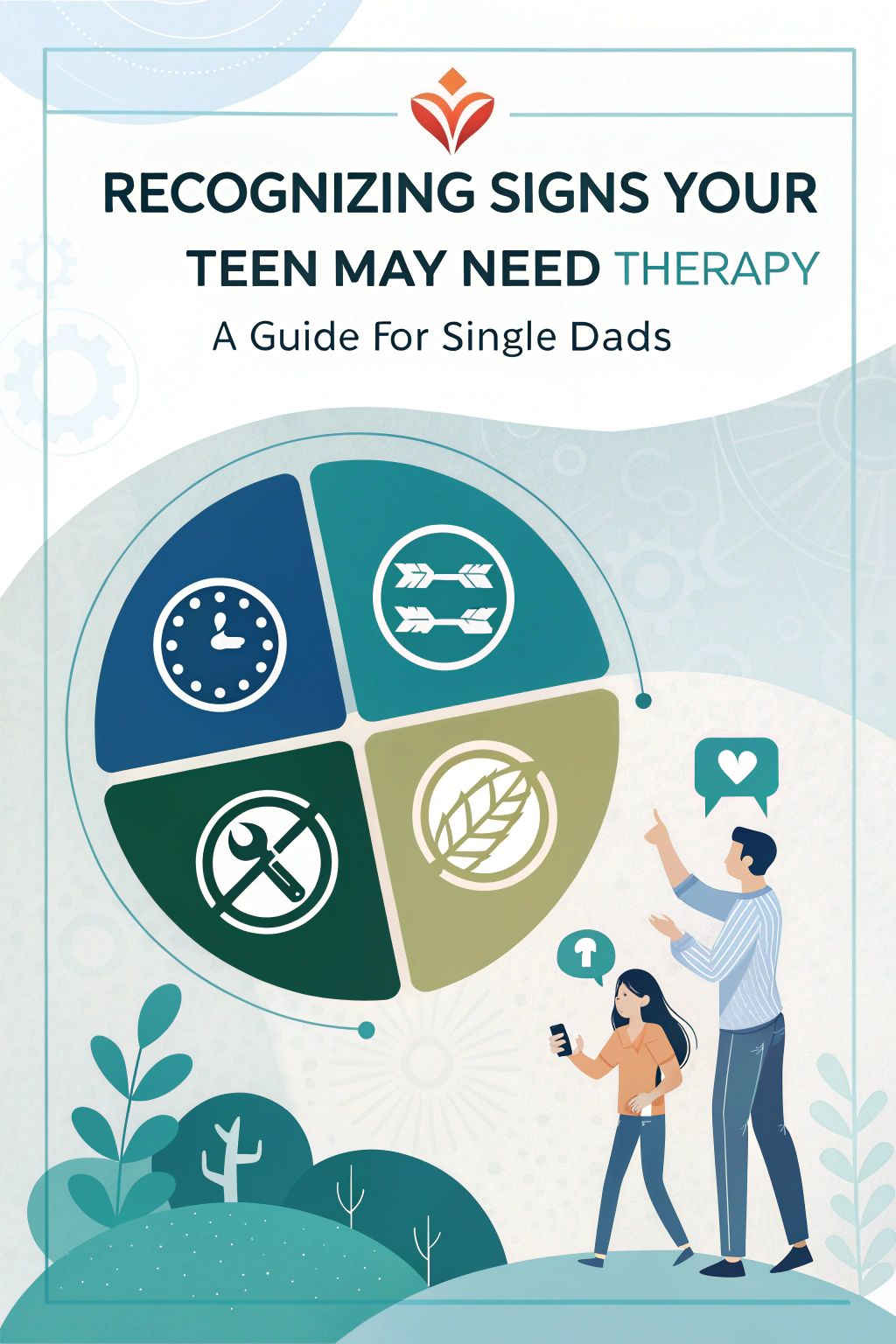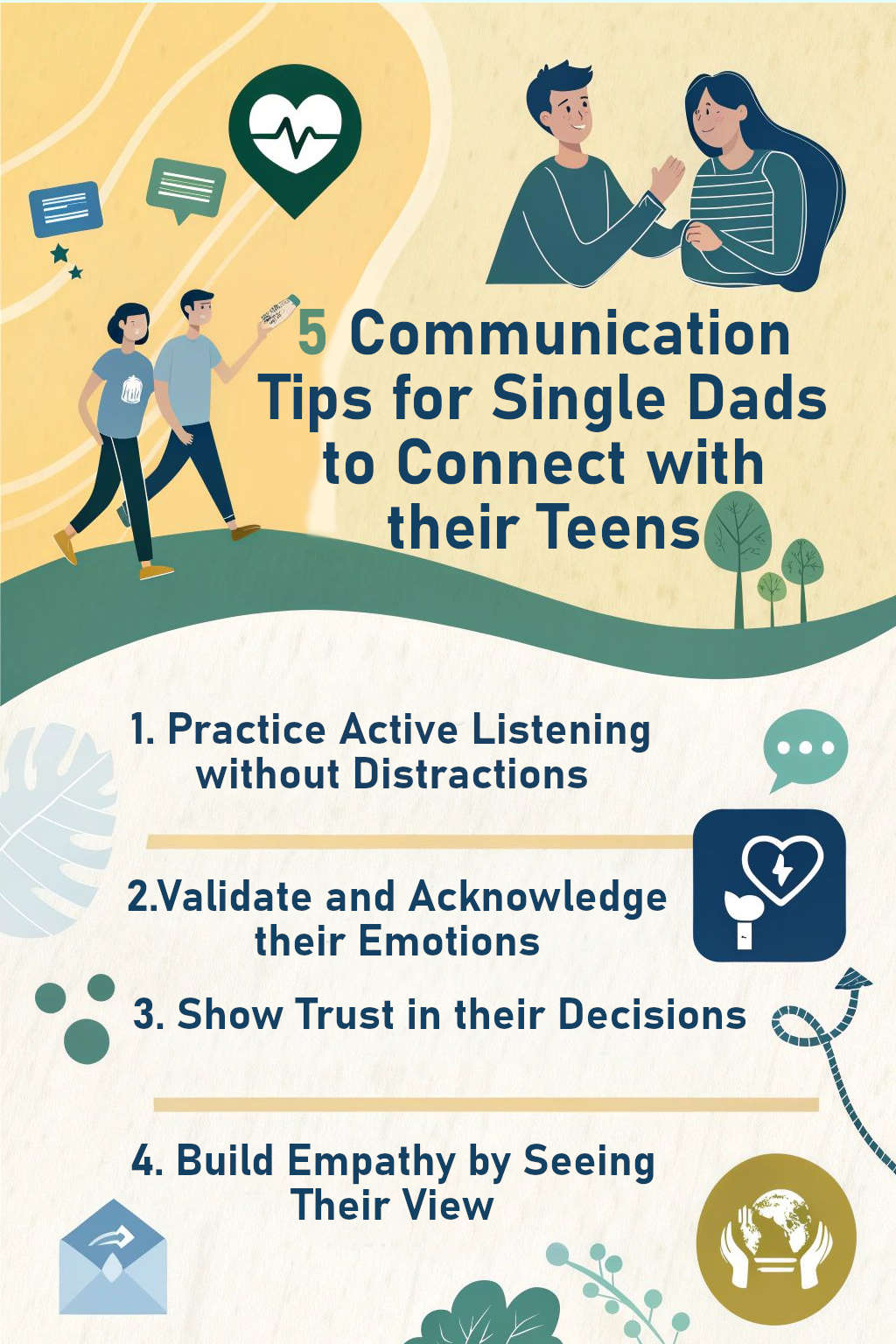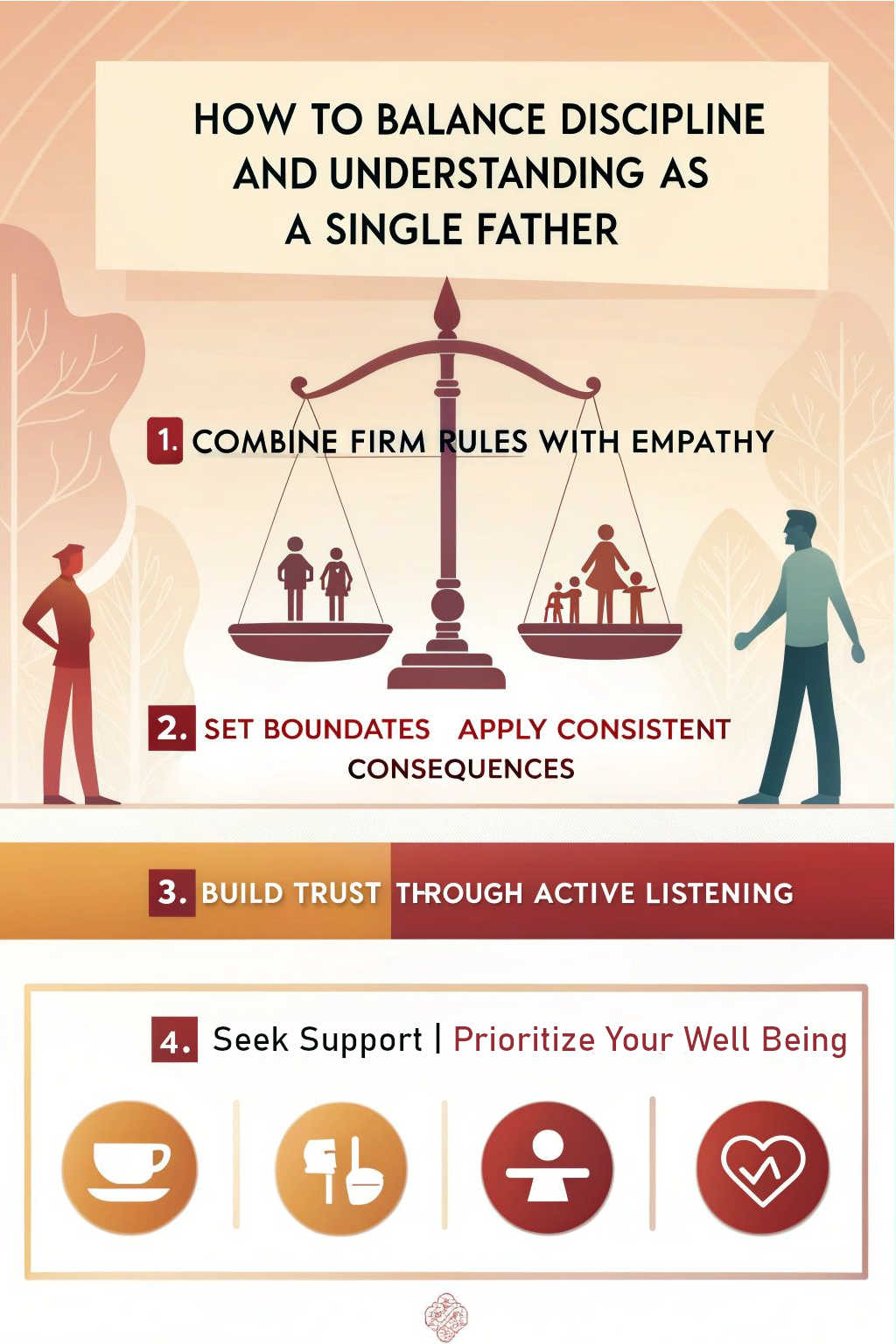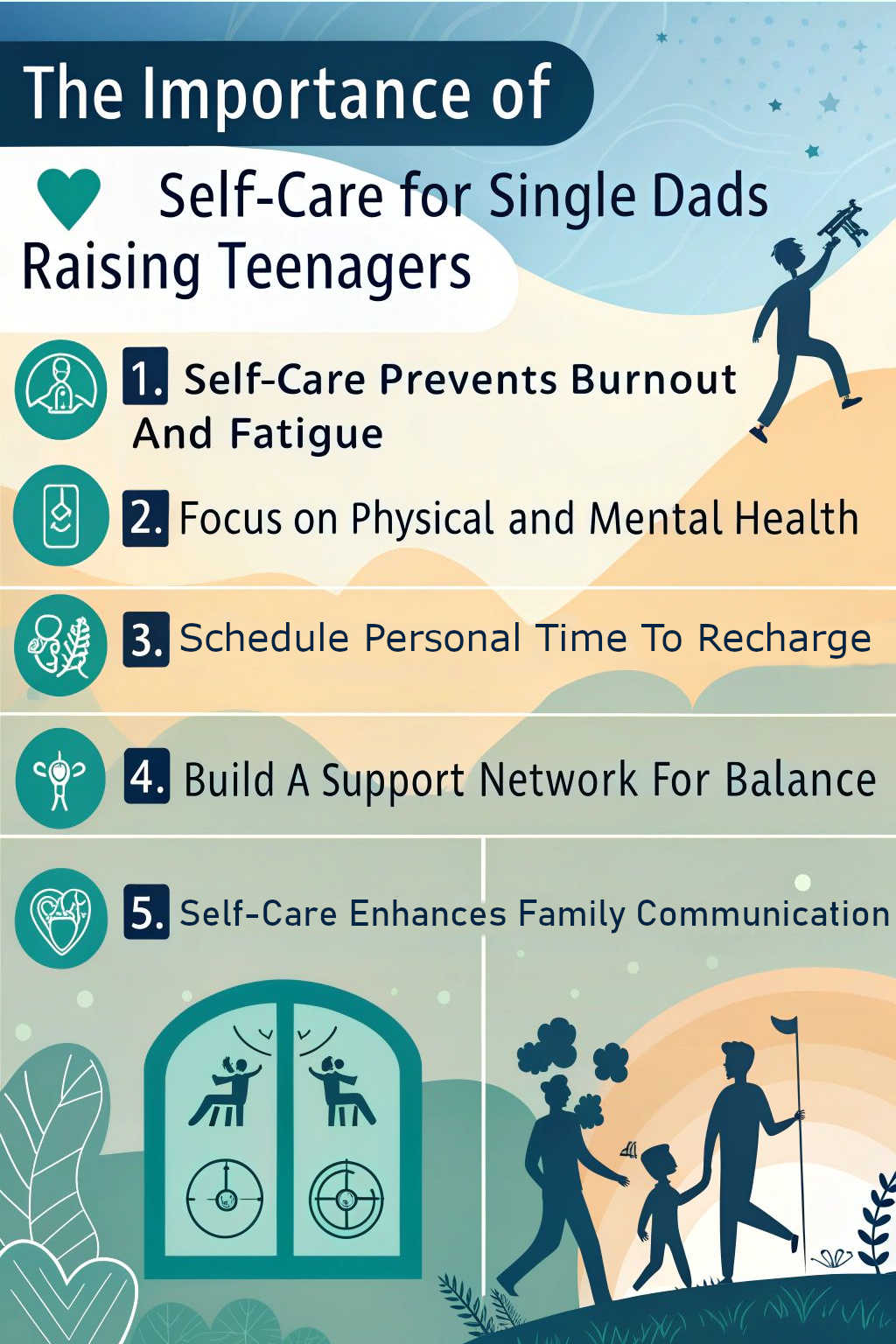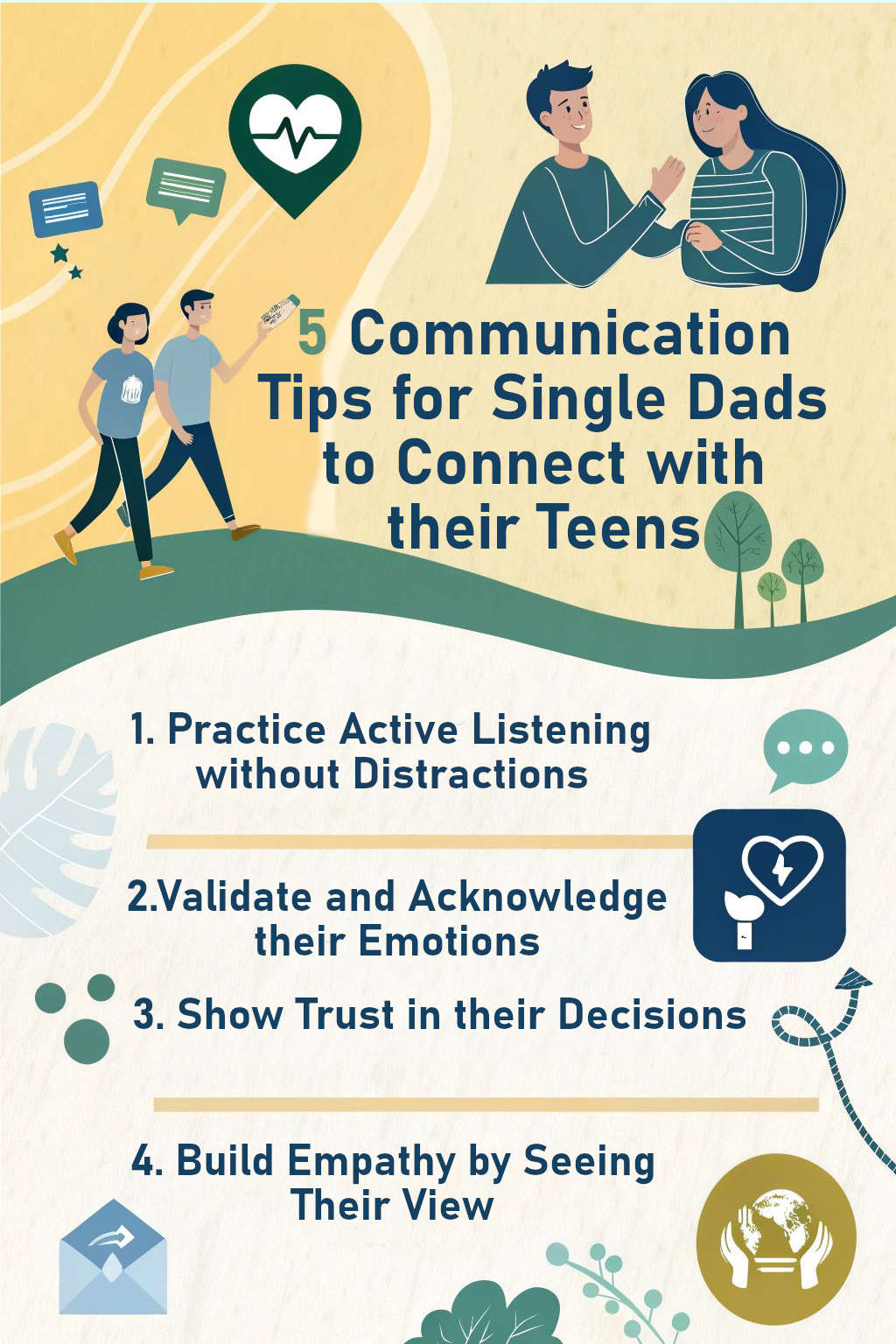Many teenagers find talking about sexual health and relationships tough. A surprising fact is that most of them never receive comprehensive sex education. This article aims to bridge that gap, offering valuable insights and practical advice for those involved in adolescent counseling.
Keep reading to discover more.
Key Takeaways
- Counselors and teachers give teenagers the tools to make smart choices about their sexual health by talking openly about topics like contraception, STDs, and healthy relationships.
- Parents play a significant role in their kids’ sexual education. By joining conversations at home, they can reinforce what adolescents learn from professionals, helping teens feel more supported.
- Obstetrician – gynecologists offer critical support to young people by answering questions on reproductive health, suggesting prevention methods for diseases and pregnancies, and guiding them towards making informed decisions regarding their sexuality.
- A trauma – informed approach in counseling helps understand how past bad experiences impact an adolescent’s current choices about sex. This method creates a safer space for teens to open up and find ways to heal.
- Teaching adolescents about the elements of healthy versus unhealthy relationships empowers them to recognize signs of manipulation or abuse early on. This knowledge supports them in building respectful connections with others.
Understanding Adolescent Development and Sexual Health
Adolescents go through significant changes that affect their sexual health and development. Educating them about these aspects equips them with knowledge for making healthy choices.
Why adolescent sexual health matters
Sexual and reproductive health plays a crucial role in the overall well-being of adolescents. It is about more than just avoiding unintended pregnancy or sexually transmitted infections (STIs); it encompasses promoting positive relationships, understanding bodily autonomy, and ensuring access to truthful and comprehensive sexual education.
Good sexual health empowers young adults to make informed decisions, fostering a foundation for healthy interpersonal relationships and mental health throughout their lives.
The conversation around adolescent sexual health also addresses critical issues like consent, respect for boundaries, abuse prevention, and equality within relationships. Ensuring that young people have access to reliable health services enables them to seek advice on contraception use, STI testing, and other aspects of sexual behavior without fear or judgment.
The overview provided next delves deeper into these vital components of adolescent sexual wellbeing.
Adolescent Sexual Health: An Overview
Adolescent sexual health plays a crucial role in the well-being and development of young people. It encompasses more than just avoiding unintended pregnancies or sexually transmitted infections (STIs); it involves understanding physical changes, navigating relationships, and making informed decisions about sexual activities.
Teens face unique challenges as they transition from childhood into adulthood, including hormonal shifts that can influence behaviors and emotions related to sexuality.
Providing adolescents with comprehensive sexuality education helps equip them with the knowledge necessary for healthy decision-making. This includes not only information on abstinence and contraceptive use but also guidance on consensual interactions, respectful partnerships, and awareness of the risks associated with unprotected sex.
Recognizing the importance of adolescent sexual health is essential for promoting safe practices and reducing rates of early pregnancy, HIV prevention, and other health outcomes tied to sexual activity.
Education and open communication serve as foundational elements in supporting teens through this critical period of growth.
The Importance of Addressing Healthy Relationships in Adolescents
Understanding healthy relationships is crucial for adolescents as they navigate their formative years. It lays the foundation for emotional well-being and teaches key skills in communication, respect, and consent.
Defining Healthy Relationships
Healthy relationships involve mutual respect, trust, and clear communication between partners. These elements create a safe environment where individuals feel valued and understood.
In these relationships, both people can express their needs and feelings without fear of judgment or retaliation. Supporting each other’s growth and being honest are paramount.
Equality plays a critical role in healthy relationships, ensuring that no partner holds power over the other. This balance allows for shared decision-making and equal distribution of responsibilities.
Emotional support is consistent, with partners offering reassurance and comfort during challenging times. Healthy boundaries set by each person are respected, contributing to a strong foundation of trust and respect.
Defining Unhealthy Relationships
Unhealthy relationships often involve patterns of behavior that make one feel unsafe, disrespected, or undervalued. These can include emotional manipulation, controlling actions, and neglect.
Physical violence and forced sex are among the most severe forms of unhealthy relationship behaviors. Such dynamics hinder personal growth and can lead to negative mental health outcomes.
Signs of an unhealthy relationship might not always be obvious. They can manifest as constant criticisms, threats, isolation from friends and family, or pressure to engage in sexual activities without consent.
Understanding these signs empowers adolescents to recognize when they are in harmful situations and seek help. It’s crucial for caregivers and professionals working with youth to discuss these indicators openly and provide support for those experiencing intimate partner violence or any form of an unhealthy partnership.
Role of Counseling in Promoting Healthy Adolescent Relationships
Counselors play a crucial role in guiding adolescents to understand and foster healthy relationships. They provide the necessary tools for young people to navigate their way through complex emotions and interactions.
Sample Questions and Talking Points for Counselors
Counselors play a crucial role in guiding adolescents through the complexities of sexual health and relationships. They create a safe space for open dialogue, addressing concerns and fostering understanding.
- “How do you define a healthy relationship?” This question encourages adolescents to reflect on their values and expectations, leading to discussions about respect, consent, and communication.
- “Can we talk about your experiences or concerns with sexual activity?” This opens the door for youth to share personal stories or questions they might have regarding sexual intercourse, oral sex, or any sexual behavior in a non-judgmental environment.
- “What are your thoughts on contraception and safer sex practices?” By asking this, counselors can provide factual information about birth control options, condom use, and STD testing, debunking myths and emphasizing the importance of protection.
- “Have you felt pressure to become sexually active? Where is that pressure coming from?” This question addresses social pressures maybe from peers or social media influences, helping adolescents recognize external factors that may influence their decisions.
- “Do you know where to get reproductive health care if you need it?” Pointing teens towards reliable health care providers ensures they know how to access services like family planning clinics or STD screenings when necessary.
- “How does media (TV shows, movies, social media) influence your views on sex and relationships?” Discussing this can help adolescents critically evaluate how media portrayal of sexuality impacts their perceptions and expectations.
- “What does consent look like in a relationship?” Through this conversation, counselors emphasize the necessity of mutual agreement in all aspects of a relationship, tackling misconceptions surrounding consent.
- “Are there any aspects of your sexual health that worry you?” Encouraging adolescents to voice their fears allows for targeted advice and support in areas like avoiding teen pregnancy or dealing with breakups maturely.
- “How do cultural or family beliefs impact your views on sex?” This prompts discussion on diverse perspectives regarding sexuality within different cultural contexts, respecting each adolescent’s background while educating them about healthy sexuality.
- “What support do you wish to receive from parents or caretakers regarding your sexual health?” Identifying specific areas where teens seek adult support guides counselors in involving parents effectively in their child’s sexual education journey.
Involving Parents and Caretakers in Discussions
Involving parents and caretakers in discussions about adolescent sexual health is crucial. They play a significant role in shaping their children’s attitudes and behaviors towards relationships and sexual health.
Educators and counselors should engage them actively, providing information on how to talk about these subjects effectively at home. This approach helps build a consistent message between what adolescents learn from professionals and the discussions they have with their family.
Opening lines of communication with parents also offers an opportunity to dispel myths related to adolescent sexual behavior, emphasizing the importance of factual, age-appropriate education.
Engaging parents can lead to better outcomes for teens, including reduced rates of adolescent pregnancy and sexually transmitted infections (STIs). Next, we will explore the role obstetrician-gynecologists play in adolescent sexual health.
The Role of Obstetrician-Gynecologists in Adolescent Sexual Health
Obstetrician-gynecologists play a crucial role in guiding adolescents through their sexual health and development. They provide essential counseling and services tailored to meet the unique needs of young individuals navigating this critical phase of growth.
Counseling and Services Provided by Obstetrician-Gynecologists
Obstetrician-gynecologists play a pivotal role in adolescent sexual health by providing comprehensive counseling and services. They offer guidance on a wide range of topics, including STI screening, contraceptive options, and understanding one’s own body.
These medical professionals create a safe space for teens to ask questions and learn about their sexual health in an environment that promotes confidentiality and trust.
Beyond the basics of disease prevention and contraception, obstetrician-gynecologists are also trained to address more complex issues such as female genital mutilation/cutting (FGM/C), reproductive justice, and accessing care for teen mothers.
They work closely with adolescents to ensure they have the knowledge and resources needed to make informed decisions about their sexual health. Moving forward, let’s explore how these conversations can influence adolescent sexual decision-making counseling protocols.
Sample Questions and Talking Points for Obstetrician-Gynecologists
Obstetrician-gynecologists play a crucial role in educating adolescents about sexual health. They provide valuable counseling and services tailored to individual needs. Here are sample questions and talking points that can guide obstetrician-gynecologists during consultations with adolescent patients:
- “Can you share any concerns or questions you have about your sexual health today?” This open – ended question encourages adolescents to voice their concerns, creating a safe space for discussion.
- “Let’s talk about your understanding of contraception options.” Explaining the various contraceptives available empowers adolescents to make informed decisions regarding their sexual health.
- “How do you feel about your current relationship(s)?” Assessing the health of an adolescent’s relationships can open discussions on healthy versus unhealthy relationship dynamics.
- “Are you familiar with sexually transmitted diseases (STDs) and how they are transmitted?” Educating on STDs, including prevention and treatment, is vital for disease control among adolescents.
- “What are your thoughts on abstinence and its role in preventing pregnancy and STDs?” Discussing abstinence as one of many options helps adolescents understand its benefits without imposing it as the only choice.
- “Have you heard of pre-exposure prophylaxis (PrEP) and do you think it might be right for you?” Introducing PrEP as an option for preventing HIV infection can be life-saving information for at-risk youth.
- “Do you know what to do if you or someone else experiences female genital mutilation (FGM) or intimate partner violence (IPV)?” Providing resources and support for survivors of FGM and IPV is crucial for their physical and mental health.
- “How comfortable do you feel talking to your parents or caretakers about sexual health issues?” Gauging this comfort level can help obstetrician-gynecologists understand how much support the adolescent might need from external sources.
- “Would learning more about LGBTQ+ sexual health be beneficial for you?” Ensuring inclusivity in sexual education supports all adolescents, regardless of their sexual orientation or gender identity.
- “How does social media impact your views on sex and relationships?” Discussing the influence of social media can lead to conversations on peer pressure, unrealistic expectations, and self-esteem issues related to sex and relationships.
Adolescent Sexual Decision-Making Counseling Protocol
The Adolescent Sexual Decision-Making Counseling Protocol provides a structured approach for guiding young people through their choices about sexual activity. It equips counselors with strategies to foster informed and healthy decisions in adolescents, reflecting on the complexities of their developmental stage.
Objectives of the Protocol
The protocol aims to equip counselors with the tools they need to guide adolescents through their sexual decision-making processes. It provides a framework for addressing clinical issues, enhancing communicative skills about sexual health, and ensuring access to reproductive health services.
This approach supports the American Academy of Pediatrics’ recommendations on adolescent sex education by fostering informed choices and responsible behavior.
Empowering young people involves offering them comprehensive knowledge and resources related to safe sex practices, contraception options, and understanding the impact of their decisions on their physical and mental well-being.
The protocol’s guidelines help counselors create an environment where adolescents feel comfortable discussing sensitive topics like having sex, pregnancy among adolescents, LGBT health, and prevention of sexually transmitted infections (STIs).
Through this initiative, it contributes significantly towards primary prevention strategies in adolescent sexual health.
Guidance on Addressing Clinical Issues and Providing Resources
Addressing clinical issues and providing resources in adolescent sexual health counseling demands a thoughtful approach. Here are key strategies to ensure counselors can effectively help adolescents navigate their health concerns.
- Open conversations with active listening: Start by creating a safe space where adolescents feel comfortable sharing their thoughts and experiences without judgment.
- Identify key concerns early: Quickly pinpoint the main issues or questions an adolescent has about sexual health, contraception, or relationships to address them directly.
- Use clear, age-appropriate language: Avoid medical jargon that might confuse; instead, explain concepts in terms that are easy for teens to understand.
- Offer a variety of resources: Provide access to both online and offline resources on sexual and reproductive health education, including trusted websites like Medline and PubMed.
- Address myths directly: Combat misinformation by debunking common myths related to sexual activity, contraception, and sexually transmitted infections (STIs) using data-driven insights.
- Encourage questions about contraception: Discuss contraceptive options clearly, covering how they work, their effectiveness, and where to obtain them.
- Screen for risky behaviors sensitively: Ask about behaviors such as drug use or unprotected sex in a way that encourages honesty without imparting shame or judgment.
- Discuss consent and healthy relationships: Guide adolescents through understanding consent, recognizing unhealthy relationship patterns, and valuing respect in interactions with others.
- Make referrals when necessary: If encountering issues beyond your expertise, refer adolescents to specialized professionals like obstetricians-gynecologists for further assistance.
- Follow up consistently: Arrange for regular follow-up appointments to check on the adolescent’s progress and address any emerging concerns.
Trauma-Informed Approach to Adolescent Sexual Health
A trauma-informed approach recognizes the widespread impact of trauma on adolescent sexual health. It focuses on understanding and responding to the effects of all types of trauma in a way that supports healing and resilience.
Importance of a Trauma-Informed Approach
Using a trauma-informed approach in adolescent sexual health counseling recognizes that past traumas can deeply influence an individual’s feelings, behaviors, and choices related to their sexual health.
It ensures counselors create a safe environment where adolescents feel respected, connected, and empowered to discuss sensitive issues without fear of judgment or re-trauma. This method respects each person’s unique experiences with trauma and adjusts care strategies accordingly.
Implementing this approach can significantly impact the effectiveness of counseling sessions. It fosters trust between the counselor and the adolescent, making it easier for them to open up about personal experiences that may affect their sexual decision-making and relationships.
A trauma-informed lens also helps professionals identify underlying issues contributing to risky behaviors or concerns, allowing for more comprehensive care that addresses both immediate needs and long-term healing.
Incorporating a Trauma-Informed Approach in Counseling
Incorporating a trauma-informed approach in counseling focuses on understanding how past traumas impact an adolescent’s sexual health and relationships. This method emphasizes safety, trustworthiness, choice, collaboration, and empowerment.
Counselors are trained to recognize the signs of trauma and respond by fully integrating knowledge about trauma into their practice. They create a safe environment where adolescents feel comfortable discussing their experiences without fear of judgment.
This strategy also involves adjusting counseling techniques to help adolescents build resilience and develop healthy coping mechanisms. Counselors use empathetic communication and validate the adolescents’ feelings, fostering a healing relationship.
They advocate for adolescents by connecting them with additional resources when needed, ensuring that every interaction contributes to recovery and growth. Moving forward, intervention strategies will further address improving adolescent sexual and reproductive health through education and supportive services.
Intervention Strategies for Improving Adolescent Sexual and Reproductive Health
Effective intervention strategies empower adolescents to navigate their sexual and reproductive health with confidence. These approaches equip young people with the knowledge and resources necessary for making informed decisions about their bodies and relationships.
Sexual and Reproductive Health Education
Sexual and reproductive health education plays a vital role in the lives of adolescents. It equips them with the knowledge they need to make informed decisions about their bodies, relationships, and future.
This type of education covers crucial topics like contraception methods, the importance of consent, sexually transmitted infections (STIs), and how to avoid risky sexual behaviors.
Proper understanding helps teenagers navigate their sexual development more confidently and safely.
Teachers and healthcare providers often use interactive methods to engage young people in this subject matter. They encourage open discussions that challenge myths surrounding sex and provide evidence-based information.
By doing so, they aim to increase adolescents’ awareness about their sexual rights while promoting healthy attitudes toward sex and reproduction. The next section explores counseling approaches that complement this educational foundation effectively.
Counseling and Contraceptive Provision
Counselors play a crucial role in guiding adolescents through the maze of sexual decision-making. They provide vital information on contraceptive options, helping young people understand how to prevent unwanted pregnancies and sexually transmitted infections (STIs).
These discussions empower teens to make informed choices about their sexual health, emphasizing the importance of consent and respect in all relationships.
Exploring various contraceptive methods forms a significant part of these counseling sessions. Teens learn about the effectiveness, advantages, and potential side effects of different contraceptives.
Counselors also stress the significance of regular medical check-ups with obstetrician-gynecologists for maintaining reproductive health. This comprehensive approach ensures that adolescents receive the knowledge and support they need to navigate their sexual lives responsibly.
Addressing Female Genital Mutilation and Intimate Partner Violence
Female genital mutilation and intimate partner violence are critical issues that require attention in adolescent counseling. These practices harm adolescents’ physical and mental health, violating their rights and dignity.
Counselors play a vital role in identifying victims, providing supportive environments for discussions, and guiding them toward available resources for help. They use trauma-informed approaches to ensure sensitive handling of such cases, fostering trust and facilitating recovery.
Interventions focus on education about the harmful effects of these practices and empowering adolescents to seek help. By discussing consent, respect in relationships, and legal protections, counselors equip adolescents with the knowledge to protect themselves and advocate for change.
This segment leads into exploring the broader impact interventions have on improving adolescent sexual health.
The Impact of Interventions on Adolescent Sexual Health
Effective interventions significantly improve adolescent sexual health by boosting their knowledge and empowering them to make informed decisions. These strategies lead to positive outcomes, increasing the ability of young people to navigate their sexual and reproductive health with confidence.
Increased Sexual Knowledge
Increased sexual knowledge plays a vital role in empowering adolescents to make informed decisions regarding their sexual health. By providing accurate information on topics such as abstinence education, the risks and responsibilities associated with having sex, and understanding consent, teenagers are better equipped to navigate their relational and sexual lives.
This essential knowledge not only covers the physical aspects of sex but also delves into emotional well-being and healthy relationship dynamics.
Educators and healthcare providers use systematic reviews and meta-analysis studies to ensure that the information shared with young people is based on evidence. Discussing contraception, preventing sexually transmitted infections (STIs), and respecting personal boundaries becomes more effective when adolescents understand the facts.
Such education efforts lead to enhanced decision-making skills among youth about their bodily autonomy and behavioral health.
Enhanced Decision-Making Skills
Effective interventions in adolescent sexual health drastically improve decision-making skills. Adolescents who receive comprehensive education on sexual and reproductive health learn to make informed choices about their relationships, actions, and well-being.
They better understand the implications of having sex or engaging in other intimate activities. This newfound knowledge empowers them to weigh the pros and cons before acting, leading to healthier outcomes.
Youths equipped with this crucial information can navigate their way through complex situations with greater confidence. They know how to access contraceptive provision and understand the importance of consent in all interactions.
Their enhanced ability to make sound decisions reflects positively on their overall mental and physical health, setting a strong foundation for responsible adulthood.
Special Considerations in Adolescent Sexual Health Counseling
Counselors tailor their approach to meet the unique needs of young people with disabilities, ensuring accessibility and understanding. They also advocate for seamless access to care, supporting adolescents in navigating healthcare systems confidently.
Addressing the Needs of Youth with Disabilities
Youth with disabilities face unique challenges in their sexual health and relationships. It is crucial to ensure that counseling services are accessible and sensitive to their specific needs.
This includes adapting communication methods, creating a welcoming environment, and providing resources that consider both their disability and adolescence phase. For example, using visual aids for those with hearing impairments can make a significant difference in understanding.
Health professionals must receive training on how to best support these young people. This involves not just talking about safe sex or contraceptive options but also discussing how to navigate relationships while managing a disability.
Obstetricians-gynecologists play a key role here by offering tailored advice that acknowledges the physical aspects of disabilities affecting sexual health. They need to collaborate closely with counselors, parents, and caretakers to provide comprehensive care that uplifts the youth’s overall well-being.
Advocacy and Access to Care
Advocates play a crucial role in ensuring adolescents have access to the sexual and reproductive health care they need. They push for policies that break down barriers, making it easier for young people to obtain services like contraception, guidance on healthy relationships, and support for issues related to sexual decision-making.
Through their work, advocates help create an environment where adolescent health thrives by promoting inclusivity and respect for young individuals’ rights to make informed choices about their bodies.
Access to care is essential for empowering adolescents with the knowledge and tools they require for safe and healthy relationships. It involves not only providing medical services but also educational programs that address topics such as consent, gender equality, prevention of intimate partner violence, and female genital cutting.
By ensuring these resources are readily available, we can significantly improve the overall well-being of young people as they navigate their developmental stages. The next section will delve into the vital contributions obstetrician-gynecologists make in this arena.
Conclusion
Educators and counselors play crucial roles in guiding adolescents through their sexual health and relationship challenges. They provide safe spaces for open discussions, debunk myths, and offer actionable advice.
By working together with obstetrician-gynecologists, they ensure comprehensive care that respects each adolescent’s unique journey. This collaborative effort paves the way for informed decisions and healthier futures for young people.
Engaging in these conversations early sets a solid foundation for lifelong understanding and respect regarding sexual health and relationships.
For additional insights on tailoring approaches in adolescent counseling, especially for those with learning disabilities, visit our detailed guide here.
FAQs
1. What topics do adolescent counselors cover in sexual health?
Adolescent counselors address various topics including the physical aspects like vaginal and anal sex, emotional elements such as making love, and critical issues like abortion and neonatal deaths. They also discuss prevention of unwanted pregnancies, ensuring young women receive comprehensive care.
2. How can counseling help prevent sexual health problems?
Counseling provides education on safe practices and helps adolescents understand the consequences of unprotected sex. By discussing methods to prevent diseases and unplanned childbearing, counselors play a key role in reducing risks associated with sexual activities.
3. Are there specific professionals who talk about pregnancy-related concerns?
Yes, obstetricians and gynecologists specialize in dealing with pregnancy-related matters. They offer expert advice on everything from conception to childbirth, helping expectant mothers navigate through their pregnancy journey safely.
4. Can peer educators make a difference in adolescent sexual health?
Peer educators significantly impact their fellow teens by sharing accurate information and personal experiences related to sexual health. Their relatable approach encourages more open conversations among adolescents about sensitive subjects.
5. What resources are available for learning more about sexual health?
The Cochrane Library is an excellent resource that offers up-to-date medical subject headings and research findings on various aspects of sexual health, providing reliable information for both teenagers and adults seeking knowledge.
